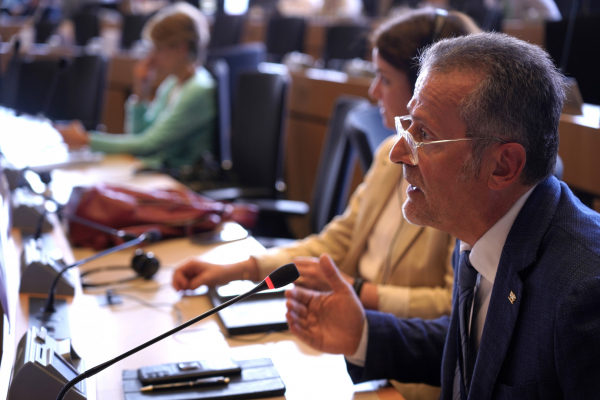
ECR member and NAT 1st Vice-President Roberto Ciambetti presented today to members of the European Parliament Agriculture Committee his opinion on "market regulations and support measures in the wine sector", which was adopted by unanimity during the last CoR plenary session before summer recess.
"I am satisfied by today's exchange of views with the members of the EP Agriculture Committee. It is of crucial importance to recognise the crisis facing the wine sector from social and demographic changes to unpredictable production not to mention international trade", said Mr Ciambetti. The wine sector employs more than 3 million people in the European Union and is a cornerstone of the economy, particularly in rural areas, as well as a pillar of cultural heritage throughout Europe.
Amongst the key demands contained in Mr Ciambetti's opinion are the protection of producers from unfair competition, the support of small and medium producers, as well as welcoming the measures put forward for stabilising the market and protecting producers in the form of green harvesting and the grubbing up of vineyards. "These measures will need to be designed and implemented in close dialogue with regions and local authorities, with flexibility and promoting the uptake of resilient and climate-resilient varieties", added Mr Ciambetti.
The CoR rapporteur warned against the risk of new non-alcoholic products on the market, which must be accompanied by adequate communication initiatives that bring attention to their high energy expenditure and high sugar content. Mr Ciambetti called for responsible consumption with more transparent access to information for consumers.
Finally, Ciambetti referred to the incentives for wine-related tourism, which he described as an "engine of development, especially for rural areas, that can provide truly immersive and non-superficial experiences".

